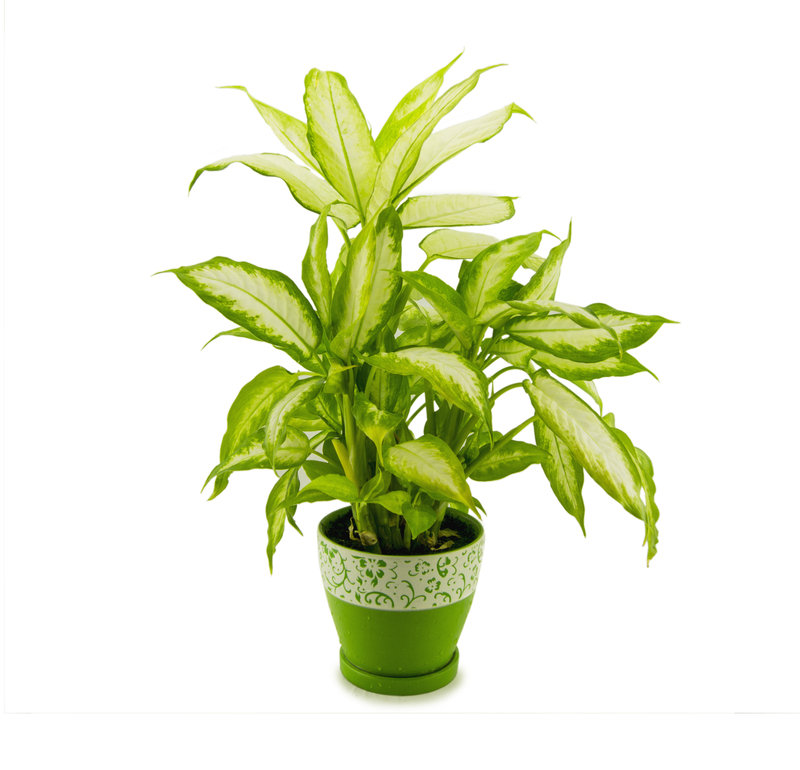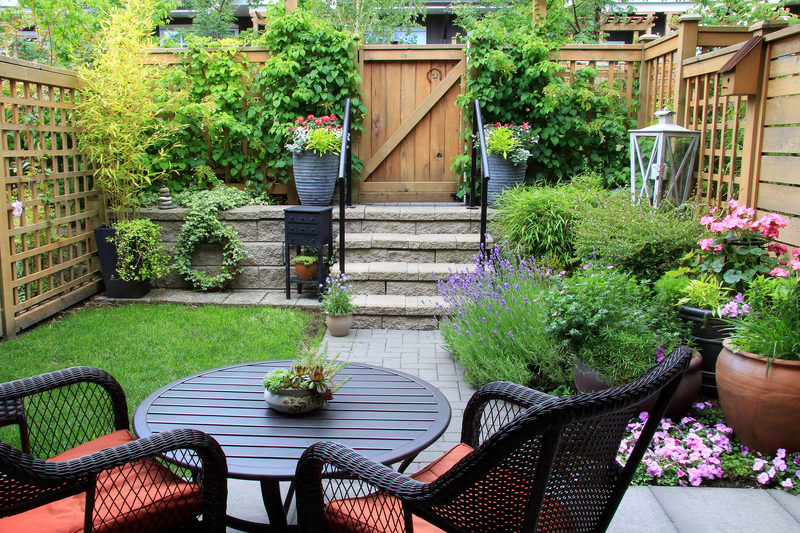Orchid Care Simplified for Beginners
Posted on 13/08/2025
Orchid Care Simplified for Beginners: A Comprehensive Guide
Orchids are often considered the jewels of the plant world, captivating plant lovers with their exquisite blooms and charismatic grace. Yet, many shy away from bringing orchids home, fearing their reputation for being difficult to keep alive. The truth is: orchid care for beginners is much simpler than you might think. With a little knowledge and patience, even novice plant enthusiasts can enjoy the year-round splendor of healthy, flowering orchids in their homes.

Understanding Orchids: Debunking the Myths
Before diving into the essentials of growing orchids, it's important to separate fact from fiction. Let's clarify some common misconceptions:
- Orchids are not just one species. There are over 25,000 species of orchids, making them the largest family of flowering plants.
- Orchids are adaptable. While some orchids have specific needs, many varieties--like the popular Phalaenopsis (moth orchid)--are easy to care for and forgiving for beginners.
- Orchids are not parasites. Unlike what some people believe, most orchids are epiphytes; they simply cling to trees for support, not for food.
With these myths out of the way, you can embark confidently on your orchid journey.
Choosing the Best Orchid for Beginners
While all orchids are stunning, some types fare better with beginners. The following varieties are known for their resilience and easy orchid maintenance:
- Phalaenopsis (Moth Orchid): The quintessential starter orchid, prized for long-lasting blooms and adaptability to home conditions.
- Dendrobium: Tough and tolerant, thrives in indirect light and can rebloom easily.
- Cattleya: Known for their vibrant, fragrant flowers and moderate care requirements.
- Oncidium: Require slightly more light but are very rewarding with their dancing, delicate flowers.
If you're new to easy orchid care, start with a healthy moth orchid and you'll gain confidence and enthusiasm quickly.
Where to Place Your Orchid: Light and Environment
Orchid placement is crucial. Many indoor orchid care failures come from insufficient or excessive light.
Lighting Needs
- Indirect sunlight is ideal--think of the light a sheer curtain provides.
- Windowsills facing east or west are typically perfect.
- If leaves turn yellow, the orchid may have too much light; if dark green, not enough.
Temperature and Humidity
- Most orchids prefer temperatures between 65-80?F (18-27?C) during the day and slightly cooler at night.
- Ideally, maintain 50-60% relative humidity. Use humidity trays or a humidifier if your indoor air is dry.
Tip: Orchids dislike sudden drafts, so avoid placing them near vents or doors.
Watering Orchids: Less is More
Overwatering is a common mistake in beginner orchid care. Remember, most orchids are epiphytes in nature and do not sit in wet soil.
How Often Should You Water?
- Water once a week is sufficient for most varieties. In dry environments, you might water every 5 days.
- Consider the "soak and dry" method: thoroughly water the orchid's growing medium, then let it dry out before the next watering.
- Avoid letting orchids sit in stagnant water. Good drainage is essential.
Quick test: Insert your finger about an inch into the medium; if it feels dry, it's time to water.
Orchid Potting Mix and Repotting
Orchids need air at their roots. Regular potting soil is too dense and holds too much moisture.
- Choose the right medium: Specialized orchid bark mixes (bark, perlite, charcoal, sphagnum moss) are ideal.
- Repot every 1-2 years or when the mix breaks down and becomes soggy.
- Use clear pots: These help you observe root health and moisture.
During orchid repotting, trim away dead or mushy roots and rinse the plant before placing it in fresh mix.
Fertilizing Your Orchid
Compared to other houseplants, orchids need less fertilizer. Still, proper feeding helps support healthy growth and vibrant blooms.
- Use a balanced orchid fertilizer (such as 20-20-20) or those specifically formulated for orchids.
- Dilute fertilizer to half strength and feed every two weeks during the growing season, less often when dormant.
- Never fertilize a dry orchid--moisten it first to avoid root burn.
Remember the phrase: "Weakly, weekly"--feed lightly but regularly for optimal orchid health.
Encouraging Your Orchid to Rebloom
Patience is key in beginner orchid care! After your orchid flowers fade, you might wonder what comes next. With the right approach, you can persuade your orchid to bloom again and again.
Reblooming Tips
- Give the plant a short period of cooler nights (about 55-60?F or 12-15?C) for a few weeks. This mimics seasonal changes and stimulates flowering.
- Trim the flower spike just above a healthy node rather than cutting it to the base--this can trigger new bloom spikes.
- Keep providing proper light, water, and fertilizer to support the plant's cycle.
With regular care, most moth orchids will bloom once or twice a year, with flowers lasting several months.
Common Orchid Problems and Solutions
New growers sometimes worry about orchid pests and diseases. Most problems are easily prevented or treated with timely intervention.
Typical Issues:
- Yellow leaves: Often due to overwatering or too much direct sunlight.
- Root rot: Caused by standing water or dense medium. Always ensure good drainage.
- Pests: Mealybugs, scale, or spider mites can infest orchids. Wipe leaves with a soapy, damp cloth and improve air circulation.
- Leaf spots or mold: Remove affected leaves and reduce humidity slightly if mold appears.
Proactive care is the best defense--catching issues early helps your plant thrive.
Orchid Care Throughout the Year
Orchid care for beginners involves subtle adjustments across the seasons:
- Spring/Summer: Orchids actively grow--more water, regular feeding, and occasional repotting if needed.
- Autumn/Winter: Reduce watering and feeding as growth slows. Consider providing supplemental light if daylight is limited.
- Year-round: Remove dead flowers and leaves, monitor humidity, and check for pests regularly.
Frequently Asked Questions About Orchid Care
Can orchids grow indoors?
Absolutely! Most orchids do well indoors, thriving on windowsills or bright rooms with stable temperatures and humidity levels.
Do orchids need pruning?
Not beyond removing dead stems or leaves. After flowering, trim flower spikes above a node to encourage reblooming, or cut entirely if they turn brown.
How can I tell if my orchid is happy?
- Healthy roots: Firm and green/silver, never mushy
- Glossy leaves: Bright green (not dark), firm, with no spots
- Regular blooms: A sign your orchid enjoys its environment!
How long do orchids live?
With proper care, orchids can thrive for decades, putting on rewarding displays every year.

Bonus Tips: Mastering Beginner Orchid Care
- Rotate your orchid: Turn the pot regularly for even growth.
- Don't mist excessively: While extra humidity is good, wet leaves may develop fungus under poor air circulation.
- Mark your calendar: Note watering or fertilizing days to avoid forgetting them.
Conclusion: Orchid Care Success for Every Beginner
Orchid care doesn't have to be intimidating! By understanding your plant's needs--from light, watering, and temperature to the right growing medium--you can enjoy the remarkable beauty of orchids in every season.
Start with a beginner-friendly moth orchid, follow the tips above, and before long, you'll be sharing homegrown orchid bouquets with friends and family. Orchid care made simple is just the beginning of a rich, colorful journey into the world of plants. Happy growing!
Latest Posts
Crafting Fertile Grounds from Organic Waste Materials
Your Pathway to a Blossoming Garden: 9 Beginner's Tips
Explore how your backyard garden can be a tool for climate action
Keep Your Garden Safe: Combat Extreme Weather Conditions
Revitalize Your Garden with Creative and Comfortable Seating Ideas

